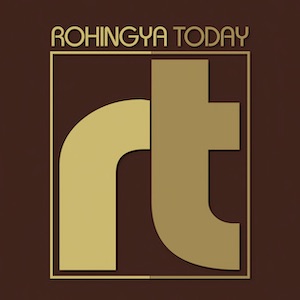
Burma Doubles Down on Repressive Policies Against Journalists
14 January 2019 -- London, UK -- The Yangon Region High Court has rejected an appeal by two incarcerated Reuters journalists, Thet Oo Maung (a.k.a Wa Lone) and Kyaw Soe Oo, and upheld the original seven years prison sentence passed on them by the Yangon Northern District Court. The pair were arrested on 12 December 2017 and they were sentenced on 3 September last year. The journalists were arrested after their work exposed a massacre of Rohingya Muslims in Inn Din Village, which the military was then forced to admit occurred.
“These men have been imprisoned to intimidate the free press in Burma and punish those who expose the military. They should be celebrated for their work, but instead, they continue to suffer in prison unjustly for it. Burma has clearly shown the world that it will not stand for free speech if it is against their own interest,” said BHRN’s Executive Director, Kyaw Win.
After their arrest, the state-owned newspapers said the reporters had approached members of a battalion of the security force to obtain information and facts related to the Rakhine region. It said they illegally obtained the information with an intention to pass it on to foreign news agencies and that they were arrested along with the documents, which include confidential information.
In an interview with the NHK news agency last June, Daw Aung San Suu Kyi said the two journalists were not arrested because of their reporting on the Rakhine issue but for a breach of the Official Secrets Act. Her comment came a month before the court decided to indict them on a charge under the same law.
A police captain named Moe Yan Naing, who commented to the media that the two Reuters journalists were trapped by police, was sentenced to one year in prison. Khin Maung Lin, a police sergeant who was arrested along with Moe Yan Naing was “disappeared.” The government has so far failed to say when and where he was arrested or where he has been held since.
The judgment on the two journalists does not say they were found guilty because they possessed documents with information on security forces as they were originally accused of. Rather, it said they breached the law by possessing the documents related to itinerary of the visits by the state leaders and for having phone numbers of a rebel group, Arakan Army (AA). In fact having these kind of information are not unusual for a journalist.
When these facts are viewed collectively, it is clear the military held strong views against the journalists for their work in Rakhine and has sought to use the legal system to punish them, even when the arguments against them are scattered and inaccurate. The reason given at the time of the arrest of the journalists, Daw Aung San Suu Kyi’s comment on the same matter, as well as the court process, testimonies by the witnesses in the case and judgment by the court are all inconsistent.
Journalists are facing increasing pressure in Burma and are not free to criticize government policies or the actions of the military. The rejection of the Reuters journalists’ appeal sends a strong message to the international community that the NLD and Burmese military do not value free speech or the media and will silence anyone who tries to expose their crimes. As the regime punishes these two journalists we must ask why other countries are not condemning this or taking action to punish the regime for such egregious behavior. For Burma to be truly free the world must end its silence and inaction.
Organisation’s Background
Burma Human Rights Network (BHRN) is based in London, operate across Burma andworks for human rights, minority rights and religious freedom in Burma. BHRN has played a crucial role advocating for human rights and religious freedom with politicians and world leaders.
Media Enquiries
Please contact:
Kyaw Win
Executive Director
Burma Human Rights Network (BHRN)
E: [email protected]
T: +44(0) 740 345 2378








